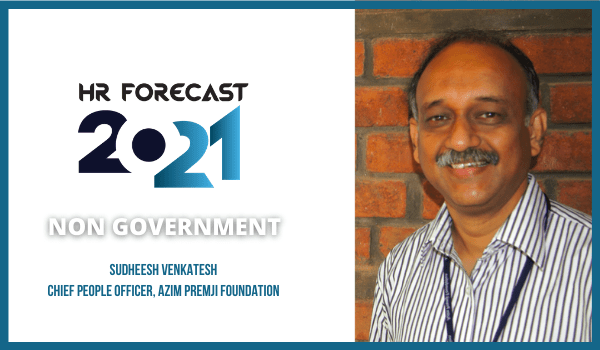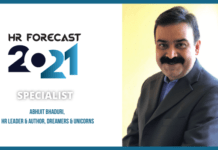2020: What to learn – what to erase
Rise of remote working and use of collaboration tools was a great learning. The year made it abundantly clear that remote working is possible and most of us accepted technology as integral to our lives. To an extent, in our organisation, despite the restrictions on travel and in-person meetings, we were able to keep up the pace of our work and our engagement with teachers and students, only because of technology.
I would like to erase the uncertainty and trauma people faced in 2020 — the plight of migrant workers, the loss of loved ones and the residual economic impact.
HR has shown great agility and business acumen
Human resources has always been a business function and always critical to business success. In 2020, the role of HR evolved, pushing it into the spotlight. In these unprecedented times, HR teams across organisations have played even more critical roles, enabling teams to adjust to the new ways of working and keeping staff engaged, motivated and productive, even while adjusting to the new normal.
As the initial chaos settled, HR teams stepped up and supported the physical and emotional wellbeing of employees too. To be truly effective in this ‘new normal’, HR leaders now need to work with the organisation’s collective intelligence, prioritise company values, and enable solutions to emerge. This means, HR leaders will need to start collaborating more with employees at every level.
Efficiency or flexibility— what will change the organisation design in 2021
With most teams having adjusted to remote working for close to a year now, organisation design in 2021 will change for the long term. Given the cost benefits, agility, flexibility and improved productivity that technology has brought in, it is quite likely that some of these changes are here to stay. Human resources teams are now tasked with reworking many processes, such as e-recruitment, e-joining, e-learning, rewards and recognition and so on, in order to continue to meet the expectations of the business and their people. Therefore, flexibility with a focus on maximising efficiency will be key to the overall organisation design.
Upskilling leadership or diversity in leadership
It is not either/or! Organisations will need to make efforts on both fronts, as both are equally important. In the massive economic downturn that we have seen, upskilling leadership (navigating in uncertainty, leading people remotely…and so on) takes a central role. Equally, organisations have realised the advantages of a diverse leadership pool. Building a truly diverse leadership must be an ongoing exercise, which cannot happen through sporadic interventions. It can only happen if organisations consciously accept diversity as a strategic imperative for business success and build it into their culture. This will reflect in the smallest of decisions and processes.
Value our content... contribute towards our growth. Even a small contribution a month would be of great help for us.
Since eight years, we have been serving the industry through daily news and stories. Our content is free for all and we plan to keep it that way.
Support HRKatha. Pay Here (All it takes is a minute)




































